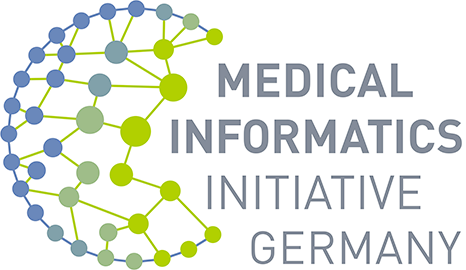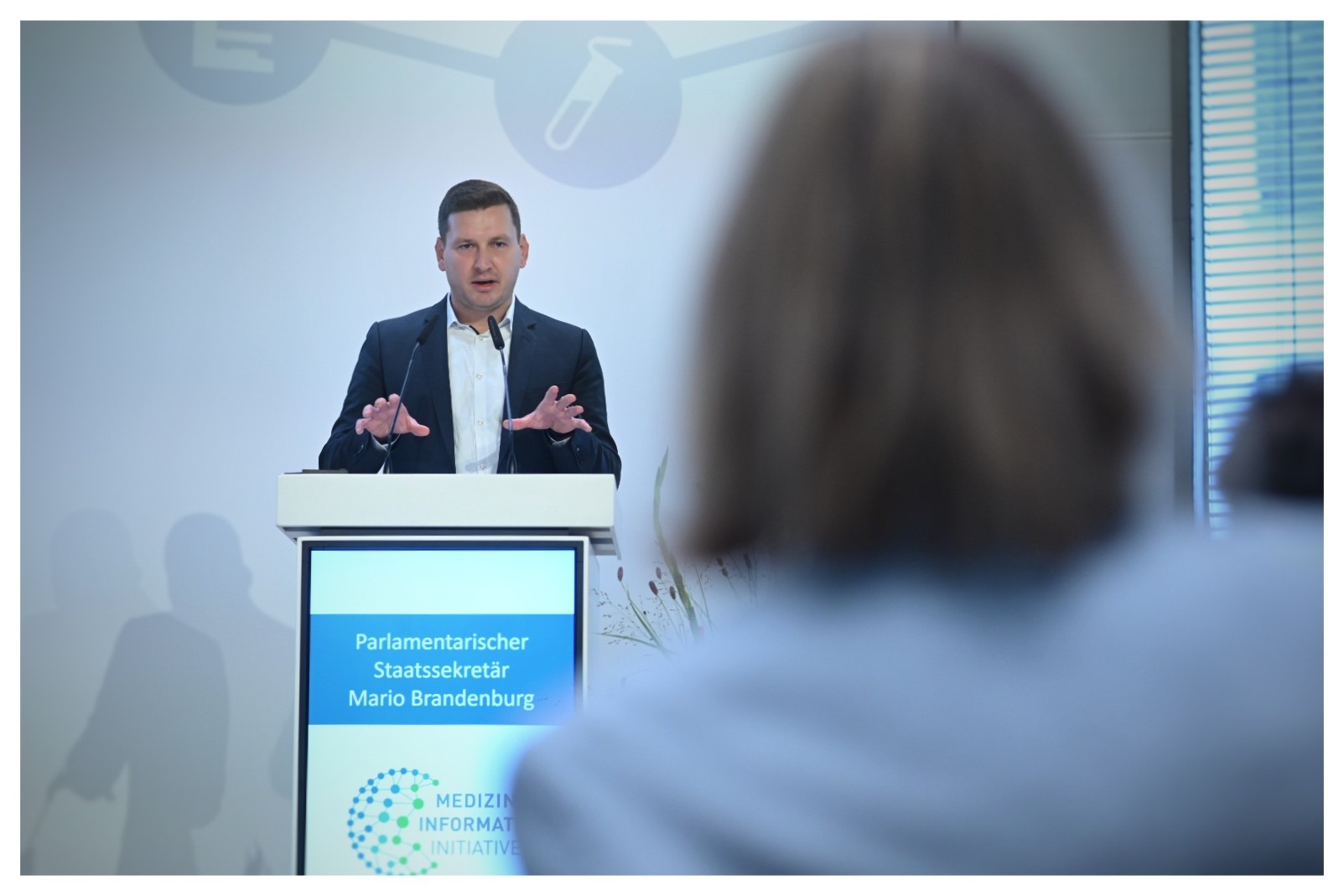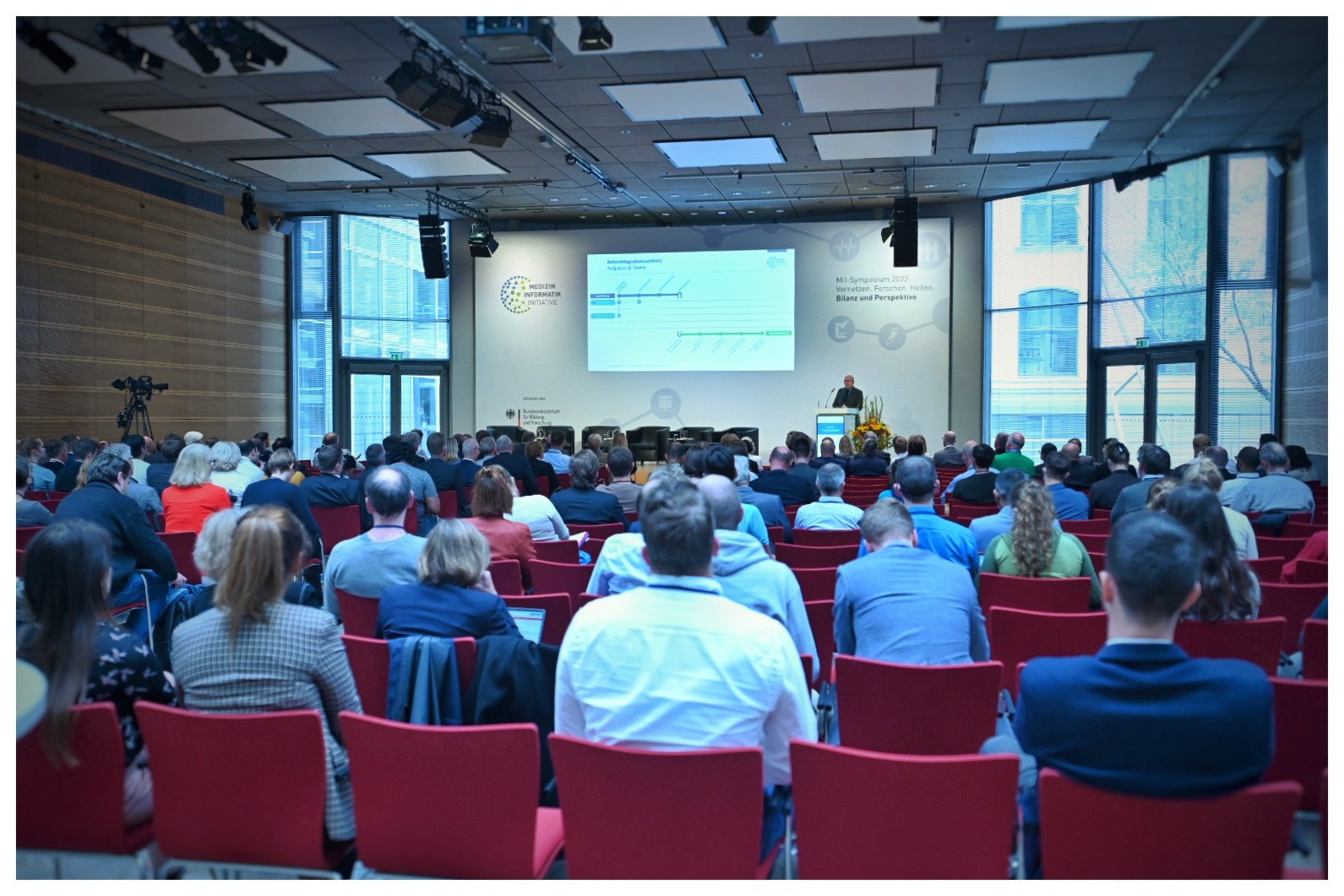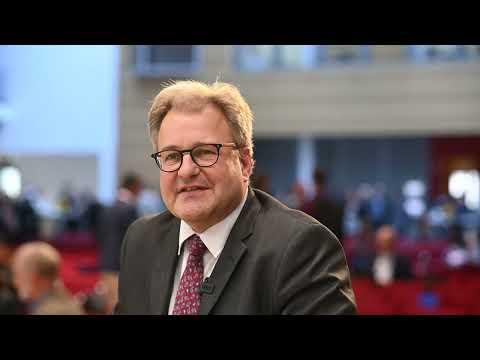Berlin, 06/10/2022. The Medical Informatics Initiative (MII) symposium was held in Berlin on October 5th and 6th 2022 under the motto "Networking. Research. Healing. Results and prospects”. It was attended by more than 300 participants from the field of university medicine, research policy employees and members of associations and patient organisations. The highlight of the two-day event was the presentation of the German Portal for Medical Research Data. It is the central search and request portal for researchers wishing to use health data from German university hospitals for their research projects. Objectives for the upcoming funding stage of the MII starting in 2023 include involving non-university stakeholders and improving the acceptance of using health data for research amongst the populace.
In the opening speech of the MII symposium, Mario Brandenburg, Parliamentary State Secretary at the Federal Ministry of Education and Research, said that the MII has already become Germany's most important force in the digital transformation of health research. This momentum must be carried over into the next stage of funding. "The Portal for Medical Research Data (FDPG) is a vital building block of the digital strategy for data-driven medicine in Germany. For the first time, the FDPG enables researchers to query and request datasets from the healthcare documentation of all German university hospitals via a central access point", explained Sebastian C. Semler, TMF Managing Director and Head of the MII Coordination Office.
This has been made possible by establishing data integration centres (DICs) at university hospitals across the nation within the MII. This research data infrastructure will provide a wide range of medical data to the scientific community in a manner that complies with data protection regulation. The research results will be incorporated directly back into care so that patients can benefit directly from the findings. In this way, the MII will become the engine of a national, decentralised, cooperative research data infrastructure, as enshrined in the coalition agreement.
Connecting research and care
"University hospitals have always taken a combined approach to research and care. Research findings are incorporated directly into diagnostic and therapeutic decisions and thus reach patients quickly. The huge amount of care and research data collected continuously by university hospitals can be shared amongst the university hospitals through the infrastructure created by the Medical Informatics Initiative", said Jens Bussmann, Secretary General of the German Association of Academic Medical Centers (VUD), with which the TMF jointly operates the MII Coordination Office. A much broader dataset can now be used to investigate many medical issues, said Bussmann. “Healthcare and research must go hand in hand in the educational healthcare system of the future", urged keynote speaker Dr. Katrin Crameri, Director of the Swiss Personalized Health Network (SPHN). This can create entirely new opportunities and adds real value for the entire healthcare system. The Swiss SPHN is a similar network to the German MII and faces comparable challenges.
Results of the first stage of funding
The symposium also looked back on a successful first stage of funding from 2018-2022. In addition to establishing DICs at university hospitals nationwide, a synchronised cross-site core dataset was defined. This defines which datasets DICs must keep available for all inpatient data as a minimum requirement. One central legal prerequisite for this is a nationwide standard text for patient consent (broad consent). This has been accepted by all federal and state data protection authorities. Furthermore, a set of contracts regarding the use of patient data, biosamples, analysis methods and routines within the framework of the MII has been coordinated with all legal departments of the university hospitals. Likewise, it is crucial to use international data exchange standards, such as SNOMED CT, and to promote the use of FHIR and LOINC.
Networking with other initiatives and stakeholders
In the upcoming stage of funding from 2023-2026, the MII will focus on networking with other initiatives such as the Netzwerk Universitätsmedizin (NUM - German Network of University Medicine), the National Research Data Infrastructure (NFDI), and the Working Group of Medical Ethics Committees (AKEK). The Federal Ministry of Education and Research is providing a total of 200 million euros from 2023-26 to fund the work of the MII. The DICs will be integrated into the NUM from 2023 onwards, giving them long-term prospects. However, their synchronised development will be continued via the MII. Regional and outpatient care facilities will also be integrated into the MII infrastructure in the future.
Panel discussion on the European Health Data Space
The MII symposium concluded with a panel discussion concerning the political framework for the use of medical data in research. The panel members were Thomas Jarzombek, Member of the German Bundestag, Ruppert Stüwe, Member of the German Bundestag, Delia Strunz, Johnson & Johnson, Prof. Friedrich Köhler, Charité, and Sebastian C. Semler, TMF e. V. The MII infrastructure is not only of huge national benefit, it also lays the foundation for Germany's connection to the European Health Data Space (EHDS), explained Sebastian C. Semler. The EU Commission's draft of the EHDS highlighted the importance of taking a European approach to data usage. We have to pave the way for this vital task in Germany, according to Semler. However, public acceptance of data usage is still a major hurdle that must be overcome. The panelists agreed that physicians and patients alike still require a great deal of education and persuasion concerning what medical data is used for and why data usage is important. The participants also agreed that data protection needs to be designed more solution-oriented and modern.
To the video:
Press contact:
Sophie Haderer, Wiebke Lesch, Tel.: 030 − 22 00 24 732, E-Mail: presse@tmf-ev.de
Background:
The aim of the Medical Informatics Initiative (MII) is to digitally connect routine data from patient care throughout Germany and make it available for medical research in order to be able to treat diseases faster and more effectively in the future. All of Germany's university medicine institutions are working on this together with other research institutions, companies, health insurance companies and patient representatives in the four consortia DIFUTURE, HiGHmed, MIRACUM and SMITH.
In the development and networking phase (2018-2022), the BMBF is funding the development of data integration centres at university hospitals with over 200 million euros. From 2023 to 2026, the cooperation between the university medical centres is to be expanded and extended to include new partners.
In addition, the BMBF is funding six "Digital Hubs: Advances in Research and Health Care” with around 50 million euros (2021-2025) as part of the MII. Their task is to transfer (initially in pilot projects) the pioneering work of the university hospitals to other areas of the healthcare system: from outpatient care to rehabilitation and aftercare. To strengthen research and teaching in the field of digital health, the BMBF is also supporting newly established professorships with a total of 21 junior research groups and providing around 30 million euros for this purpose (2020-2026).
A coordination office operated by TMF - Technology, Methods and Infrastructure for Networked Medical Research with the German Association of Medical Faculties (MFT) and the German Association of Academic Medical Centers (VUD) in Berlin is responsible for the national coordination of the MII.




